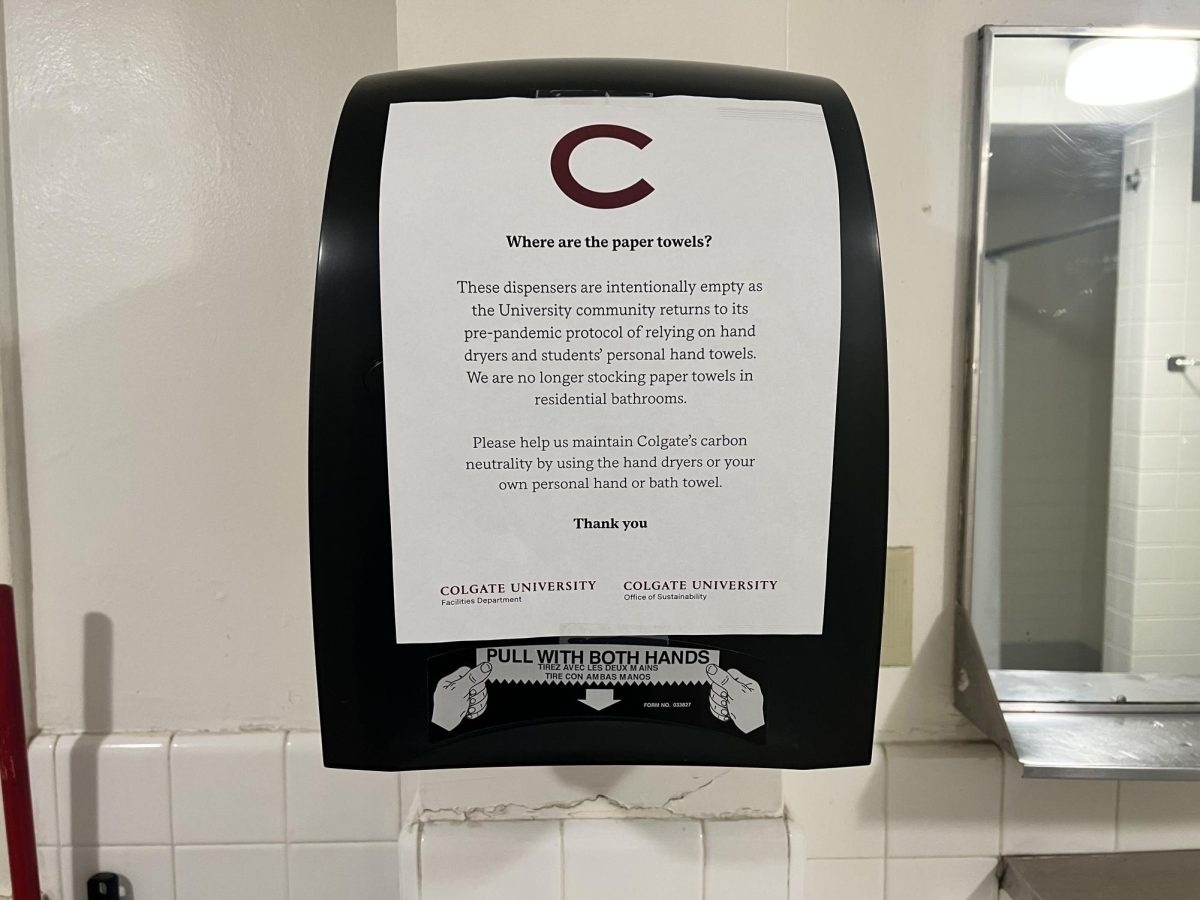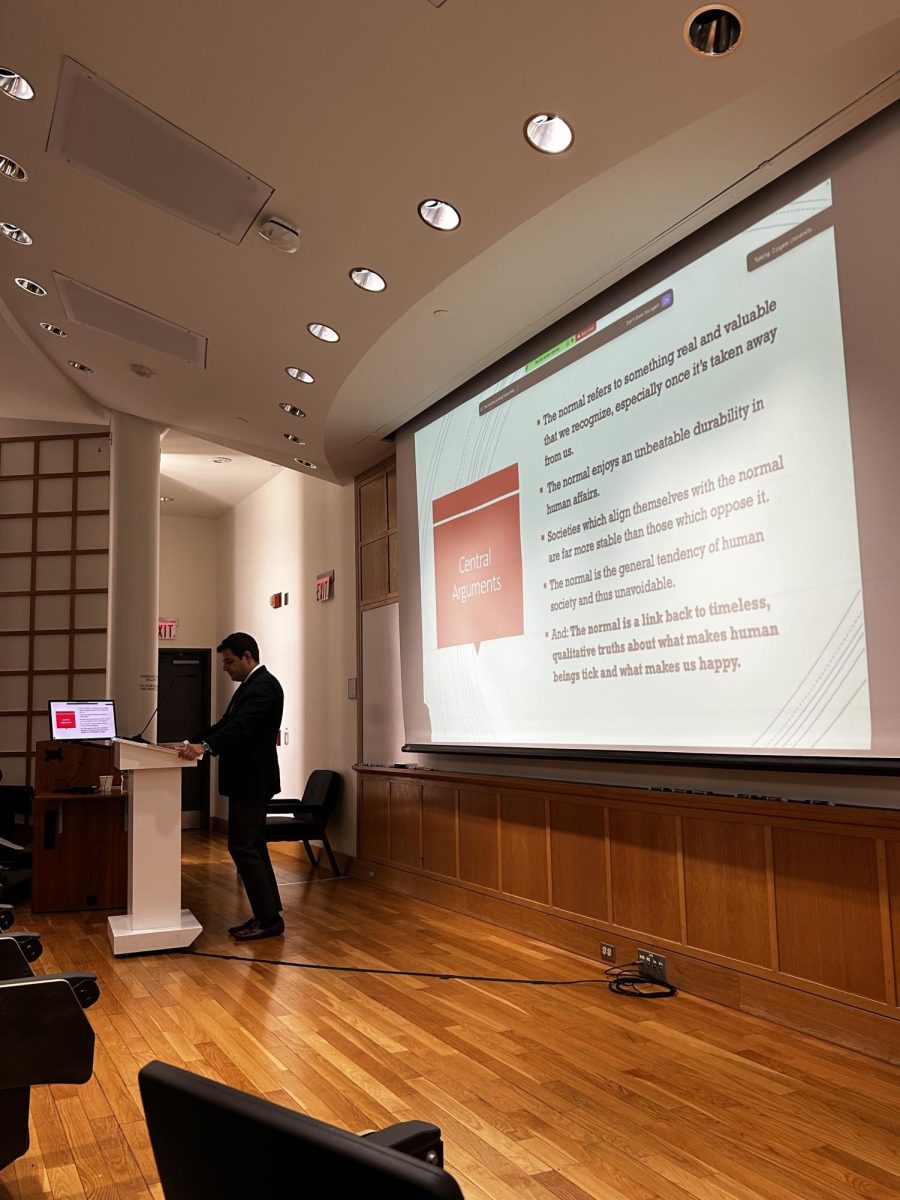In coordination with the Office of Sustainability and the Facilities Department, Colgate University has placed signs in residence hall bathrooms stating that, in an attempt to eliminate as much waste as possible, the campus is returning to its pre-pandemic standards, removing paper towels and leaving hand dryers as the only option.
“These dispensers are intentionally empty. Please help us maintain Colgate’s carbon neutrality by using the hand dryers or your own personal hand or bath towel,” the new signs read.
The Office of Sustainability did not make this decision on a whim, according to its representatives, as the change is something that affects the day-to-day life of students.
Junior Kate Maxwell, a representative for the Office of Sustainability, provided some background and insight on the change with the hope of eliminating single-use waste products as much as possible from Colgate’s campus.
“[The shift is] not a significant difference, but one that can urge people to think consciously about their role in promoting sustainability after their life at Colgate,” Maxwell said.
With the impact of climate change, the Office of Sustainability believes that eliminating waste is something that will help a place like Colgate move toward a better and more sustainable future. Although its representatives note that this decision might not make an incredible impact on Colgate’s waste disposal, it could make people more conscious about their use of single-use products both on and off campus.
Custodial Operations Manager Michelle Butzgy discussed how the changes impact Colgate’s overall garbage production.
“Reduction in the garbage production has a direct impact on the overall weight of trash produced on campus,” Butzgy said. “It reduces the need for plastic trash bags and helps to reduce fuel consumption in transportation to trash landfills.”
While it might not be obvious that removing the paper towels in residence halls is making an impact, as Butzgy explained, reducing waste can help in more ways than one. Limiting plastic trash bags and reducing the use of fuel consumption can help Colgate work towards its goal of being a more sustainable campus. By eliminating some single-use waste, Colgate can move towards a smaller carbon footprint. While it may be a small step, those who were involved in making this decision feel that it will make a greater impact on Colgate’s campus, the environment and the mindset of Colgate students in regards to what they choose to waste.
Some students agree with the direction that Colgate is trying to move towards, such as sophomore Elle Laub, who was involved as an Office of Sustainability representative last year.
“Even a slight reflection from each student when they notice the paper towels are not being used could be beneficial to making this campus more sustainable and environmentally conscious,” Laub said.
Making students more aware of their decisions when it comes to their use of single-use waste seems to be the main motivation behind this decision and some students, such as Laub, understand the importance of being more environmentally aware.
As the University attempts to move towards a more carbon-neutral campus, the removal of paper towels in residence halls is a step in that direction, according to the Office of Sustainability and student opinion. Increasing awareness of environmentally sustainable decisions is something that custodial staff, the Office of Sustainability and students are working towards in order to make Colgate’s campus more environmentally friendly.













